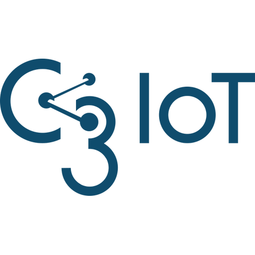Download PDF
Enterprise AI for HealthTech: Streamlining Supply Chain Operations

Technology Category
- Analytics & Modeling - Machine Learning
- Functional Applications - Inventory Management Systems
Applicable Industries
- Education
- Equipment & Machinery
Applicable Functions
- Logistics & Transportation
- Warehouse & Inventory Management
Use Cases
- Digital Twin
- Supply Chain Visibility
Services
- Data Science Services
The Challenge
The global HealthTech company, with over 35 manufacturing facilities worldwide, faced a significant challenge due to its complex IT landscape. The company's growth, both organically and through strategic acquisitions, led to a scattered supply chain data across various ERP systems. This complexity hindered the company's ability to gain crucial business insights and answer critical questions such as prioritizing product lines or SKUs, identifying 'lazy inventory' in the supply chain, and optimizing inventory allocation across distribution centers. These challenges became even more critical during the peak of the COVID-19 pandemic, particularly for the company's respiratory ventilator products.
The Customer
Not disclosed
About The Customer
The customer is a global leader in the HealthTech industry, with over 80,000 employees and 35 manufacturing sites worldwide. The company generated over $22 billion in revenue in 2020 and filed over 1,000 new patents in 2019. The company manufactures products in more than 35 facilities worldwide and ships products to customers globally via an extensive network of production and distribution centers. The company has grown organically and through many strategic acquisitions, resulting in a complex IT landscape.
The Solution
The C3 AI team addressed the inventory visibility challenge across the company's respiratory ventilator products. In just four weeks, they configured the C3 AI Supply Network Risk application for 42 critical ventilator SKUs. The team unified disparate supply chain data on the C3 AI Supply Chain Digital Twin and configured five dashboards on the C3 AI Supply Network Risk application to provide end users with a global real-time view across the supply chain. After resolving the visibility challenge, the team configured machine learning algorithms and the application logic to predict order lead times and OTIF (on-time in-full) delivery risks for over 10,000 SKUs. The C3 AI Supply Network Risk was successfully configured and deployed into production in collaboration with a cross-functional team across the HealthTech company and C3 AI.
Operational Impact
Quantitative Benefit
Related Case Studies.

Case Study
Smart Water Filtration Systems
Before working with Ayla Networks, Ozner was already using cloud connectivity to identify and solve water-filtration system malfunctions as well as to monitor filter cartridges for replacements.But, in June 2015, Ozner executives talked with Ayla about how the company might further improve its water systems with IoT technology. They liked what they heard from Ayla, but the executives needed to be sure that Ayla’s Agile IoT Platform provided the security and reliability Ozner required.

Case Study
IoT enabled Fleet Management with MindSphere
In view of growing competition, Gämmerler had a strong need to remain competitive via process optimization, reliability and gentle handling of printed products, even at highest press speeds. In addition, a digitalization initiative also included developing a key differentiation via data-driven services offers.

Case Study
Predictive Maintenance for Industrial Chillers
For global leaders in the industrial chiller manufacturing, reliability of the entire production process is of the utmost importance. Chillers are refrigeration systems that produce ice water to provide cooling for a process or industrial application. One of those leaders sought a way to respond to asset performance issues, even before they occur. The intelligence to guarantee maximum reliability of cooling devices is embedded (pre-alarming). A pre-alarming phase means that the cooling device still works, but symptoms may appear, telling manufacturers that a failure is likely to occur in the near future. Chillers who are not internet connected at that moment, provide little insight in this pre-alarming phase.

Case Study
Premium Appliance Producer Innovates with Internet of Everything
Sub-Zero faced the largest product launch in the company’s history:It wanted to launch 60 new products as scheduled while simultaneously opening a new “greenfield” production facility, yet still adhering to stringent quality requirements and manage issues from new supply-chain partners. A the same time, it wanted to increase staff productivity time and collaboration while reducing travel and costs.

Case Study
Integration of PLC with IoT for Bosch Rexroth
The application arises from the need to monitor and anticipate the problems of one or more machines managed by a PLC. These problems, often resulting from the accumulation over time of small discrepancies, require, when they occur, ex post technical operations maintenance.

Case Study
Robot Saves Money and Time for US Custom Molding Company
Injection Technology (Itech) is a custom molder for a variety of clients that require precision plastic parts for such products as electric meter covers, dental appliance cases and spools. With 95 employees operating 23 molding machines in a 30,000 square foot plant, Itech wanted to reduce man hours and increase efficiency.





